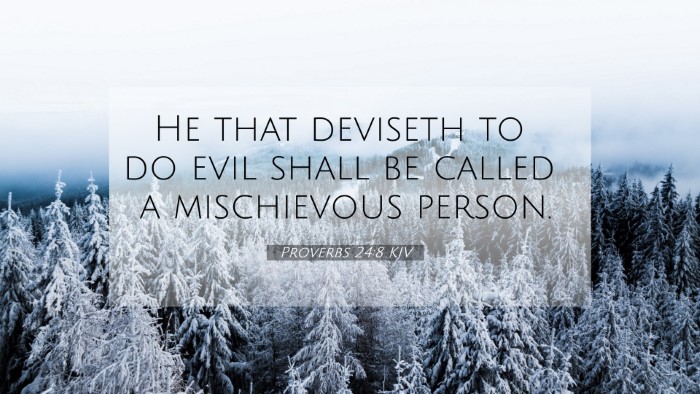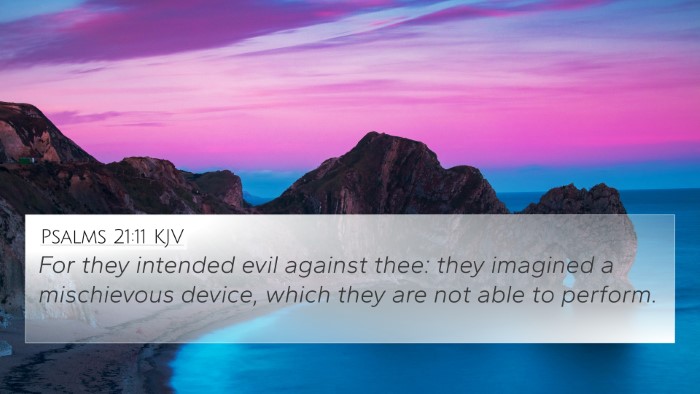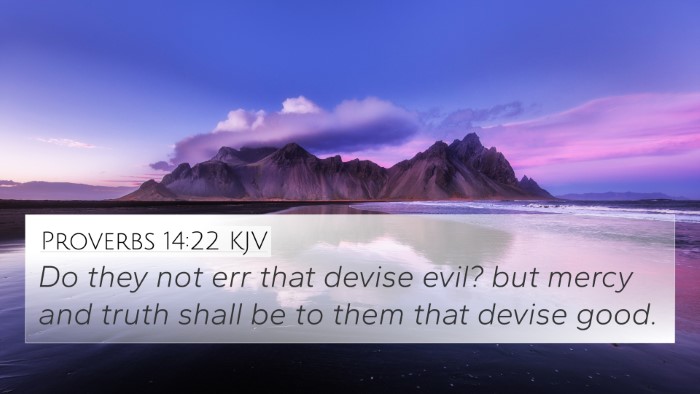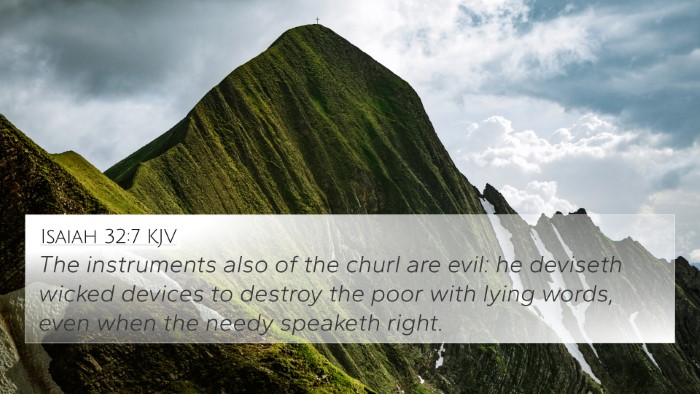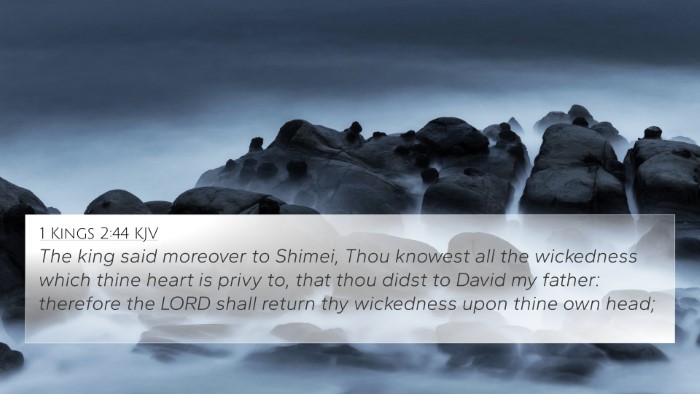Understanding Proverbs 24:8
Proverbs 24:8 states: "He that deviseth to do evil shall be called a mischievous person."
This verse serves as a caution against the intentions and plans that lead to wrongdoing. It identifies a key principle in biblical ethics: that the contemplation of evil is inherently wrong and carries consequences.
Interpretative Insights
The verse implies that the nature of a person's thoughts and intentions will eventually reflect in their character and reputation. According to various public domain commentaries, the insights provide a deeper understanding of this biblical wisdom.
Matthew Henry's Commentary
Matthew Henry explains that devising evil refers to mental planning that is malevolent. He warns that such scheming is not without repercussions. This planning leads to actions that are considered wicked, and those who engage in such behavior earn a reputation as troublemakers or 'mischievous' individuals.
Albert Barnes' Notes
Albert Barnes emphasizes that the verse highlights the moral standing of a person who plans evil. He mentions that the term "mischievous" implies someone known for their wicked intentions, ultimately suggesting that their schemes will lead to their downfall or disgrace when exposed.
Adam Clarke's Commentary
Adam Clarke focuses on the broader consequences of evil planning. He notes that those who consistently devise schemes against others not only damage their own integrity but also harm society and relationships, leading to social unrest and personal isolation.
Key Themes and Applications
The themes emerging from Proverbs 24:8 relate to:
- Accountability: Individuals are responsible for their thoughts and intentions, which shape their character.
- Consequences of Evil: Evil intentions lead to a bad reputation and personal ruin.
- Social Impact: Devising evil harms not just the perpetrator but also influences the community.
Connecting Bible Verses
Proverbs 24:8 connects with numerous other scriptures, illustrating the overarching biblical theme regarding the nature of evil and the consequences of sin:
- Proverbs 6:18: "A heart that devises wicked imaginations, feet that be swift in running to mischief."
- Proverbs 14:22: "Do they not err that devise evil? But mercy and truth shall be to them that devise good."
- Galatians 6:7: "Be not deceived; God is not mocked: for whatsoever a man soweth, that shall he also reap."
- Psalm 37:12-14: Describes the plans of the wicked against the righteous.
- Isaiah 32:7: "The instruments also of the churl are evil: he deviseth wicked devices to destroy the poor with lying words."
- James 1:15: "Then when lust hath conceived, it bringeth forth sin: and sin, when it is finished, bringeth forth death."
- 1 Peter 3:12: "For the eyes of the Lord are over the righteous, and His ears are open unto their prayers: but the face of the Lord is against them that do evil."
Thematic Connections
In the larger context of scripture, Proverbs 24:8 fits into themes of ethical conduct and the integrity of one’s character. The moral teachings found within wisdom literature often emphasize the importance of aligning thoughts and actions with righteousness, urging believers to seek good over evil.
Tools for Bible Cross-Referencing
For those studying Proverbs 24:8, it is beneficial to utilize various tools for Bible cross-referencing to explore the interconnectedness of biblical texts:
- Bible concordance
- Bible cross-reference guide
- Cross-reference Bible study
- Cross-referencing Bible study methods
- Bible reference resources
Conclusion
Proverbs 24:8 serves as a staple reminder of the importance of pure intentions and the impact of our thoughts. It calls attention to the fact that intentions shape actions, and ultimately, one’s character and place in society. Engaging with this verse alongside its cross-references deepens understanding and reinforces the message of wisdom found throughout the Scriptures.


